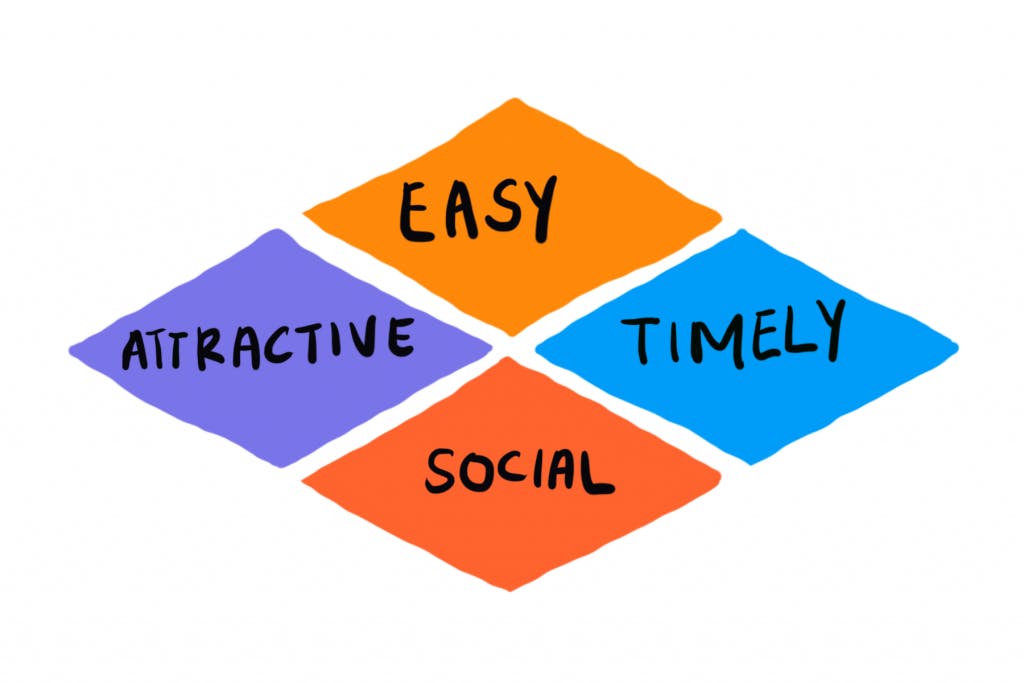EAST Framework
What is the EAST Framework?
The EAST Framework outlines four principles for driving behavior change, suggesting that behaviors are more likely to be adopted when they are easy (E), attractive (A), social (S), and timely (T). Developed by the Behavioral Insights Team, this approach helps policymakers design interventions that are more effective and align with how people naturally make decisions.

What is a Framework?
Behavior change frameworks are the bedrock of applied behavioral science. Designed by behavioral scientists for policymakers and industry leaders, these summaries of cutting-edge decision-making insights are essential for applying research in the public and private spheres. Frameworks distill strategies for influencing human decisions into simple, portable mnemonic devices or acronyms. This makes it possible for complex, theoretical insights about how people think and act to inform the practices of organizations across every industry and environment. To understand more about how these frameworks work in practice, check out our case studies.
About the Authors
Dan Pilat
Dan is a Co-Founder and Managing Director at The Decision Lab. He is a bestselling author of Intention - a book he wrote with Wiley on the mindful application of behavioral science in organizations. Dan has a background in organizational decision making, with a BComm in Decision & Information Systems from McGill University. He has worked on enterprise-level behavioral architecture at TD Securities and BMO Capital Markets, where he advised management on the implementation of systems processing billions of dollars per week. Driven by an appetite for the latest in technology, Dan created a course on business intelligence and lectured at McGill University, and has applied behavioral science to topics such as augmented and virtual reality.
Dr. Sekoul Krastev
Dr. Sekoul Krastev is a decision scientist and Co-Founder of The Decision Lab, one of the world's leading behavioral science consultancies. His team works with large organizations—Fortune 500 companies, governments, foundations and supernationals—to apply behavioral science and decision theory for social good. He holds a PhD in neuroscience from McGill University and is currently a visiting scholar at NYU. His work has been featured in academic journals as well as in The New York Times, Forbes, and Bloomberg. He is also the author of Intention (Wiley, 2024), a bestselling book on the science of human agency. Before founding The Decision Lab, he worked at the Boston Consulting Group and Google.




















